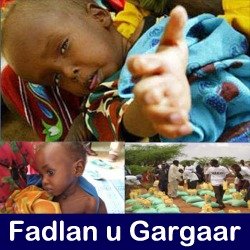The wave of radicalisation targeting young Somali children everywhere is threatening hopes for the country’s future stability
Over 20 years, I have watched Somalia disintegrate politically, crumble economically and fragment socially. But my hope for Somalia’s future was always entrusted in its younger generation. Our struggle was to invest in our youth inside Somalia to develop a culture of peace by continuously talking to them about the negative effect of the civil war. We also had great hope that the Somali young people growing up in the west would bring back to the country a culture of democracy, tolerance and coexistence with the rest of the world. Both of these hopes are being seriously challenged in Somalia today by a wave of radicalisation that directly targets Somali young people everywhere.
The religious disintegration in Somalia is what worries me the most. I never feared for Somalia as much as I do now. My fear emanates from the fact that I am today seeing a Somalia that I do not recognise. Up until recently, we could make sense of the complex political and social dynamics. The way to gauge it was that, one way or another, most things tended to be tribal or clan motivated. But the radicalisation in the country and in Somali communities in many parts of the world today is quite bewildering, quite unprecedented and quite detrimental to us all.
Religious groups in Somalia came to the forefront of Somali politics after the fall of the last central government in 1991. Since then, they have been part of the political process – or should I say political blunders? There was no apparent suspicion from the wider society about the motives of these organised religious groups. Somalia continued to have a blend of religio-clan politics that worked with each other as long as the clan took the overriding priority. “Fiqi tolkiis kama jana galo” – which loosely translates to mean, “even in justice religious scholars will always side with their clan and will consequently burn in hell” – is a maxim that aptly explains the religio-clan relationship in Somali society. But that was in a time of certitude. At least we always knew what we were dealing with.
But what I see now is what I will call the diktat of semi-literate and semi-sane child religious scholars. Today, 15-year-olds are giving religious edicts in Somalia that decide life and death. We are talking about teenagers who never knew anything but conflict and have never seen how a stable state functions. Youth who never had the opportunity to go to school now promulgate fatwas. Certainly they never had the chance to study Islamic jurisprudence, history or politics; never examined the Somali judicial history where customary law, Islamic sharia and the Somali penal system worked in tandem. Their qualifications for such esteemed leadership have been attained by crash radicalisation courses in the form of video and radio tapes, produced outside Somalia and designed to brainwash very unsuspecting, innocent and fragile children.
Child judges, as they are locally known in Somalia, were given the responsibility to decide on beheadings, stonings and amputations. This is a punitive system that most scholars will agree is not compatible in today’s Somalia. The reign of these children is spreading fear amongst the Somali population. A group with the name al-Shabab justifies its policies by virtue of the fact that its name means “the youth”. It alleges that its objective is to empower youth. The problem is that their definition of youth includes children as young as nine years old. And by their definition, empowerment does not mean providing an education so that they can learn and grow, but turning them into tools for murder and destruction.
In today’s Somalia, children are victims, perpetrators and bystanders all at the same time. They are also being systematically recruited and used in ever larger numbers for military and related purposes, including suicide bombings. It is a terrible ordeal for such vulnerable children who have not known peace and normalcy in their lives.
But most alarming of all is that Somali youngsters are coming from cities like London and Minnesota to be part of this Mogadishu madness. For me, this is destroying Somalis everywhere. This is taking away the future hopes for Somalia. This is creating instability for Somali communities in their respective countries in the west.
It is ironic that as very young children they were taken from Somalia under very traumatic circumstances in order to give them a better life, free from conflict. The fact that they are now returning to Somalia to kill and be killed is a symptom of greater failures. Somali communities in places like my adopted country, Britain, have collectively failed to protect their children. Governments also failed to protect these children based on their unique needs. It is time to admit that. Now is the time to stand up and protect these children if we are to safeguard any future hopes for Somalia.
Source: The Guardian




































Good overview and reality in todays life but what is the solution to these ever changing situation– in our home country
A good article, but dhibatada jirta waxaa waye we know wax walba oo dhacaaya , balse waxaan ka badin waynay inaan ka hadalno oo qura , ficil ayaase loo baahan yahay, meel ficil u baahan hadla waxba kama tarayo.
very good and i agree evry pit of it